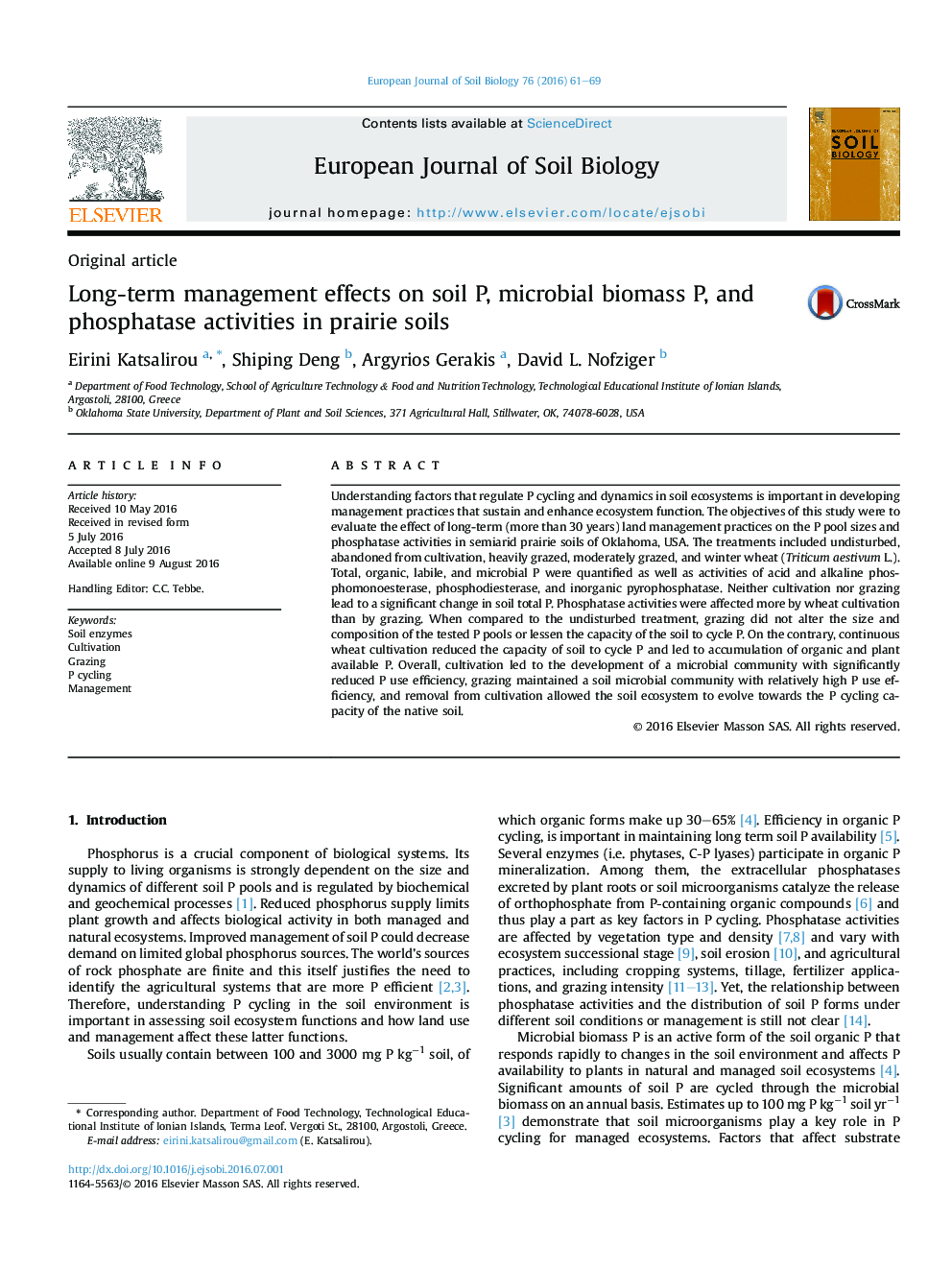| کد مقاله | کد نشریه | سال انتشار | مقاله انگلیسی | نسخه تمام متن |
|---|---|---|---|---|
| 4391671 | 1618116 | 2016 | 9 صفحه PDF | دانلود رایگان |

• Phosphatases prove more sensitive to continuous wheat cultivation than by grazing.
• Grazing sustains soil capacity to cycle P and promotes P use efficiency for the microbial community.
• Long-term wheat cultivation reduces microbial biomass P and phosphatase activities.
• Cultivation leads to organic P accumulation but reduces capacity to cycle P.
• Removal from cultivation allows soil to regain its capacity to cycle P.
Understanding factors that regulate P cycling and dynamics in soil ecosystems is important in developing management practices that sustain and enhance ecosystem function. The objectives of this study were to evaluate the effect of long-term (more than 30 years) land management practices on the P pool sizes and phosphatase activities in semiarid prairie soils of Oklahoma, USA. The treatments included undisturbed, abandoned from cultivation, heavily grazed, moderately grazed, and winter wheat (Triticum aestivum L.). Total, organic, labile, and microbial P were quantified as well as activities of acid and alkaline phosphomonoesterase, phosphodiesterase, and inorganic pyrophosphatase. Neither cultivation nor grazing lead to a significant change in soil total P. Phosphatase activities were affected more by wheat cultivation than by grazing. When compared to the undisturbed treatment, grazing did not alter the size and composition of the tested P pools or lessen the capacity of the soil to cycle P. On the contrary, continuous wheat cultivation reduced the capacity of soil to cycle P and led to accumulation of organic and plant available P. Overall, cultivation led to the development of a microbial community with significantly reduced P use efficiency, grazing maintained a soil microbial community with relatively high P use efficiency, and removal from cultivation allowed the soil ecosystem to evolve towards the P cycling capacity of the native soil.
Journal: European Journal of Soil Biology - Volume 76, September–October 2016, Pages 61–69